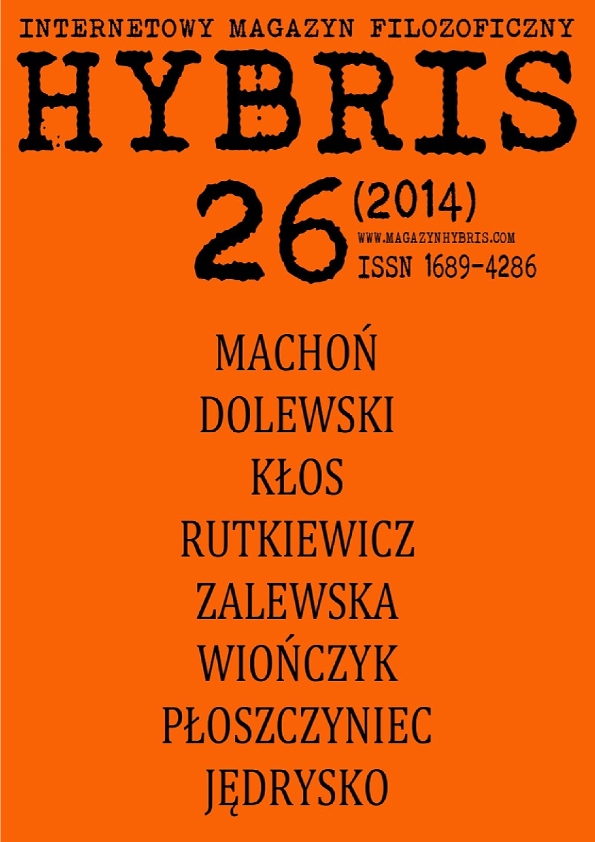THE ETHOPOIETIC FUNCTION OF WRITING: HOW TO WRITE TO MASTER ONE’S OWN IDENTITY. ON THE BASIS OF THE LATE WORKS BY MICHEL FOUCAULT
THE ETHOPOIETIC FUNCTION OF WRITING: HOW TO WRITE TO MASTER ONE’S OWN IDENTITY. ON THE BASIS OF THE LATE WORKS BY MICHEL FOUCAULT
Author(s): Paulina KłosSubject(s): Ethics / Practical Philosophy, Aesthetics, Existentialism, Philosophy of Language
Published by: Wydawnictwo Uniwersytetu Łódzkiego
Summary/Abstract: The ethopoietic function of writing is a term used to describe the possibility launched by the process of writing to transform theoretical truths into ethos — the rule that governs our vita activa. In his writings Foucault presents the concise, yet detailed, methods of governing and mastering the Self. Seneca’s hupomnēmata are an example of how to integrate theoretical knowledge into the very “body” of the Self. Introducing words into the virtual space between present consciousness and future unconsciousness increases the distance between “I” and death; hence, Foucault concludes that “we write so as not to die.” “Essential affinity between death, endless striving and the self representation of language” is, in this sense, the condition for the creation of an identity. I would like to present the ways in which Foucault assimilates all these paths to make the aesthetics and ethics of our existence coherent and complete.
Journal: Internetowy Magazyn Filozoficzny HYBRIS
- Issue Year: 2014
- Issue No: 26
- Page Range: 32-45
- Page Count: 14
- Language: English

